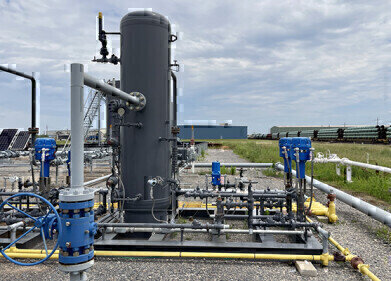Air Clean Up
How Has Lockdown Affected Light Pollution?
Apr 07 2021
The coronavirus pandemic has had a disastrous impact upon the human race, causing countless deaths and disrupting livelihoods all over the globe. However, its effect upon the planet itself has been largely benign and, in some cases, even beneficial. That’s certainly true with regard to air pollution, since sophisticated particulate matter sensing technology has revealed that concentrations of several contaminants fell drastically during the height of lockdown.
The same also appears to be true for light pollution. With industries coming to a standstill and far fewer passenger vehicles on roads, there has been less human activity in areas both urban and rural. This has led to reduced light pollution and clearer night skies, according to research conducted by UK environmental charity CPRE (formerly known as the Campaign to Protect Rural England).
A 10% reduction
Each year, CPRE undertakes a nationwide star count, whereby it invites avid stargazers from all over Britain to go outside and look up at the night sky, reporting on how many celestial bodies they can see. This year’s star count was held between the 6th and 14th of February, with almost 8,000 participants submitting their star counts to CPRE.
When all the data had been assimilated, CPRE found that just over half (51%) of those involved reported seeing just 10 or fewer stars in the sky. While that sounds like a high proportion of people seeing relatively few stars, it’s a sizable improvement on last year, when 61% reported seeing 10 or fewer stars. As such, it’s a 10% improvement in terms of urban light pollution – and the darkest skies the UK has witnessed since 2013.
Lockdown the root cause
It’s believed that the lockdown measures imposed to contain the spread of the disease are likely to be responsible for the drop-off in light pollution, which is being hailed as one of the lesser publicised environmental implications of coronavirus. With fewer people venturing outside their homes, there has been less cause to illuminate the now-vacant public spaces.
As well as spoiling a picturesque view of the night sky, light pollution has been documented as having a detrimental impact upon the mental health of humans. Meanwhile, its effects upon the animal kingdom are even more pronounced, with the potential to interrupt their breeding, eating and migratory patterns, potentially jeopardising the survival of some endangered species.
Taking action
The results of the star count have been welcomed by the CEO of CPRE, Crispin Truman, who said that it could act as a catalyst for greater improvement with regard to light pollution. “Looking up at a starry night sky is a magical sight and one that we believe everyone should be able to experience, wherever they live,” he said. “And the great thing is, light pollution is one of the easiest kinds of pollution to reverse.”
That reversal begins with small actions from all of us to turn off lights when not in use, which also has a beneficial effect on our energy consumption and carbon footprints, too. Awareness of the problem is the first step in overcoming it, so the exposure shed on light pollution thanks to this year’s reduction can hopefully serve as a springboard for greater change going forwards.
Events
Apr 22 2024 Hannover, Germany
Apr 23 2024 Kuala Lumpur, Malaysia
Apr 24 2024 Sao Paulo, Brasil
May 05 2024 Seville, Spain
May 13 2024 Munich, Germany














